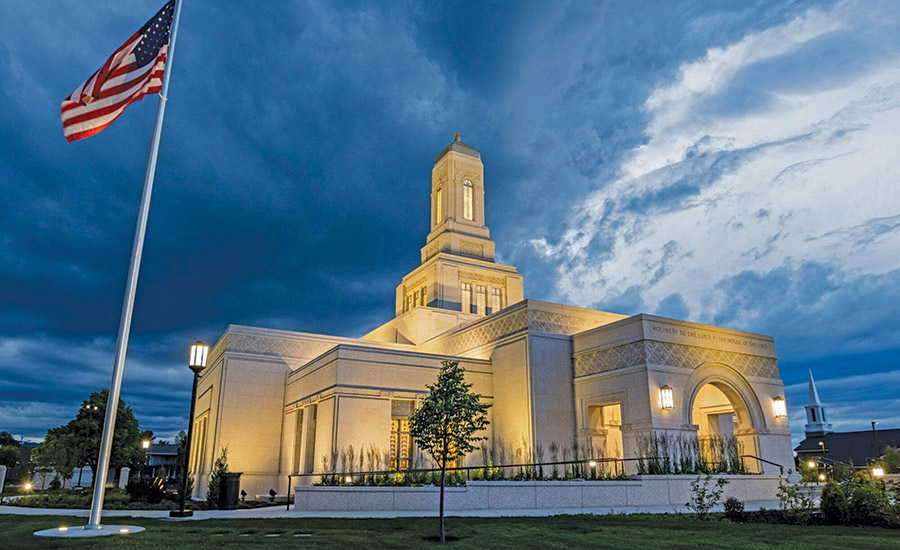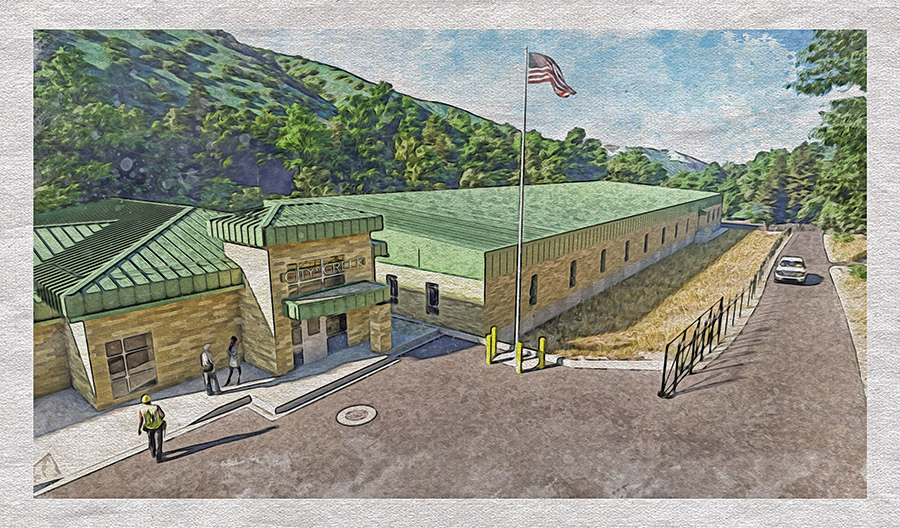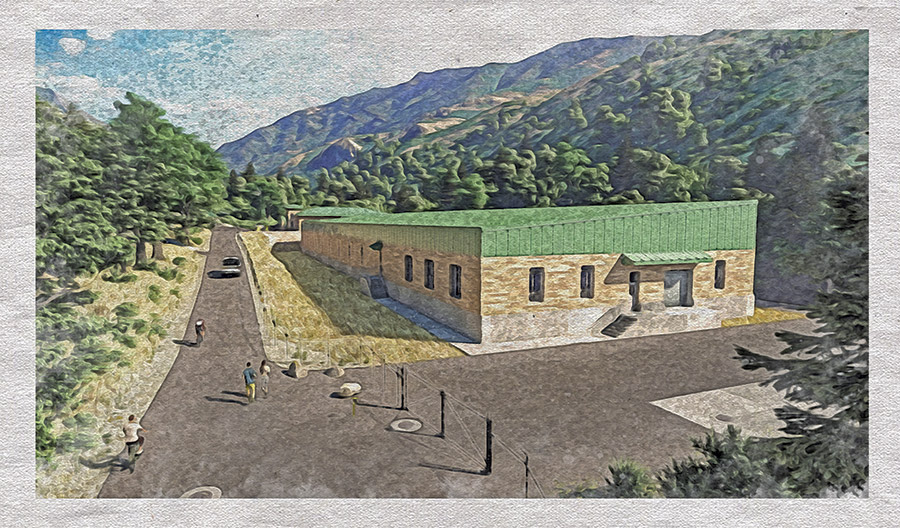ENR 2024 Intermountain Contractor of the Year: Contractor Thrives in Its Salt Lake City Home

Haskell constructed the Helena, Mont., temple for the LDS Church using modular construction. The 25 preconstructed modules were shipped to the site and assembled in just under 27 months.
Images courtesy Haskell
National construction firm Haskell opened a small office in Salt Lake City in 2018 to better serve its client, the Church of Jesus Christ of Latter-day Saints (LDS), as it prepared for a surge of new projects.
In a 2021 corporate restructuring, Haskell’s Salt Lake City office was designated as one of three new regional operations centers (ROC), along with Dallas and Jacksonville, Fla., and today it covers projects located between Dallas and California, primarily focused on water and wastewater, manufacturing, and religious and cultural projects. Those key moves positioned the contractor to take on a wider range of delivery methods and projects, but with a continued emphasis on “collaborative delivery,” says Bryan Bedell, Haskell vice president and leader for water markets at the SLC office. “The only thing we don’t do is traditional design-bid-build,” he says.
In its inaugural year, the Salt Lake City ROC reported revenue of $74 million, and by 2023 the firm’s revenue had more than quadrupled to $380 million. Haskell is ranked No. 5 on ENR’s 2024 Top Contractors list for the Intermountain region for firms in Utah, Idaho and Montana. Last year, the firm was ranked No. 14.


Built in 1955, the City Creek Water Treatment Plant is a critical water supply for nearly 365,000 people. Haskell built a temporary processing system to maintain base-level flows while the new plant is being constructed and brought online.
Images courtesy Haskell
Tech Focused
“It turned out a lot of [Haskell employees] were interested in moving here,” Bedell says, noting that the staff at the Salt Lake City office has swelled to just over 100 AEC, accounting, finance and human resource professionals. Bedell says the company also hires recent graduates from construction management and engineering programs in the region.
Haskell's operations are set up to pull resources from across the country for a given project. The contractor typically self-performs all critical path elements of a project except for electrical systems, and it partners with outside firms for engineering design on water projects.
In addition to decades of collaborative delivery experience, Bedell says Haskell’s commitment to the early adoption of new technologies has helped the firm grow.
A division within Haskell known as “Dysruptek” is dedicated to scouting, testing and sometimes investing in emerging technologies. Last year, Dysruptek received a U.S. patent for its RAPTOR (remote activated pressure testing observation and recording) device developed by an employee for testing piping systems. Haskell also utilizes a virtual reality program for safety training known as HERO, which can virtually place employees in various jobsites to identify potential hazards.
Worldwide Worship Spaces
In response to a push from the LDS church to construct more temples around the world, Haskell proposed modular construction as an option, and in 2019 Haskell made a strategic investment in BLOX, a prefabrication and modular construction specialty company in Bessmer, Ala.
“Reuse of water is really the way of the future."
—Jeremy McVey, Director of Water Project Development, Haskell
To construct a new temple in Helena, Mont., 25 preconstructed, modular components were shipped to the site and assembled to create a 9,000-sq-ft facility in a record 27 months. “[The modules] are essentially steel boxes that we are stitching together, infilling and placing cladding on,” says William Rudder, who leads Haskell’s religious and cultural market.
All the roughing-in work and drywall is completed when they arrive, and Rudder says Haskell will utilize modular construction on some of the other temples it currently has underway in the U.S., Latin America, Asia Pacific and Africa.
Western Water Work
Hurricane, Utah, is one of several towns in southern Utah experiencing exponential growth in recent years and, as a result, its sewer system needed a solution to address the greatly increased flows to its treatment plant. District officials opted to build a second treatment plant to accept flows from the neighboring towns of LaVerkin and Toquerville and some from Hurricane for processing and reuse in secondary water systems, primarily for agriculture. Haskell partnered with Draper, Utah-based Bowen Collins and Associates to design a $40-million facility that will treat 1.5 million gallons of water per day with a future capacity of 3.5 mgd. The facility is currently under construction in an area known as Confluence Park.
Michael Chandler, Ash Creek Special Service District engineer, says Haskell stood out by providing meaningful input and cost-saving design modifications during the project’s predesign workshops.
Another key project currently being constructed by Haskell is the City Creek Water Treatment plant, built in 1955, just six miles from downtown Salt Lake City. It was the first WTP in the state. As a result of earthquake damage in 2020 and supported by a $36.7-million grant from the Federal Emergency Management Administration, the aging plant is now being replaced.
Haskell constructed a temporary treatment system that will operate while the old plant is demolished and rebuilt on site. The temporary system will treat about half of the 8 mgd the existing plant put into the distribution system, which is “the minimum capacity they need to keep in the system while we tear down and replace the facility,” says Jeremy McVey, director of water project development in Haskell’s SLC office.
The $100-million project broke ground in fall 2023 and is expected to be complete in the spring of 2027. McVey says Haskell expects to lead many more water reuse projects in the region. “Reuse of water is really the way of the future,” he contends. “We’re seeing everything from reuse in secondary systems like Hurricane to taking wastewater all the way to potable use.”

